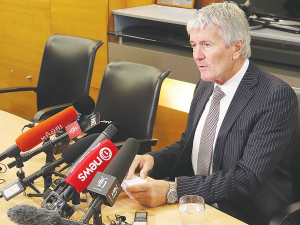The Government will review export quotas it allocates annually to milk processors.
Agriculture Minister Damien O'Connor says this is to maximise export returns for New Zealand's dairy industry.
Access into a number of dairy export markets is controlled through tariff quotas, which provides access into a market for set volumes at a lower or zero tariff.
Dairy export quota allocations are set each year by the Ministry for Primary Industries, and allocated to eligible processors proportional to the milk they collect from farmers. To be eligible processors must collect at least 0.1% of New Zealand's total milk solids.
O'Connor says New Zealand's free trade agreements with the United Kingdom and European Union present new opportunities for New Zealand exporters.
"The new dairy quotas, which will become available under the recent FTAs, means it's timely and prudent to take a fresh look at how we allocate dairy export quota," O'Connor says.
"I want to ensure the quota system is working well for everyone, that the value of quota is being maximised, and that opportunity is not being missed.
"We've fought hard for our dairy exporters and secured improved access through these FTAs. I know our dairy industry is looking to take up the benefits under these agreements as soon as possible."


















